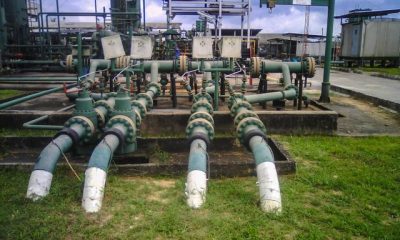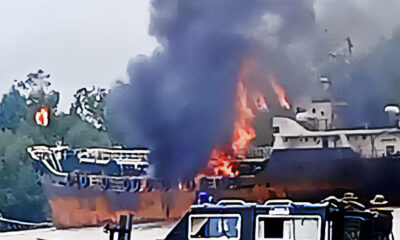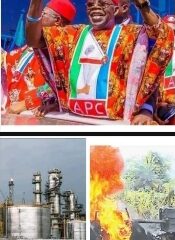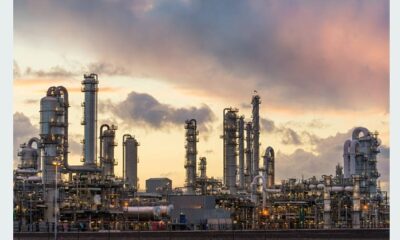IduwiniVoice Edubbas
Ensuring Safety: A Deep Dive into the 9 Industry Life-Saving Rules (IOGP)
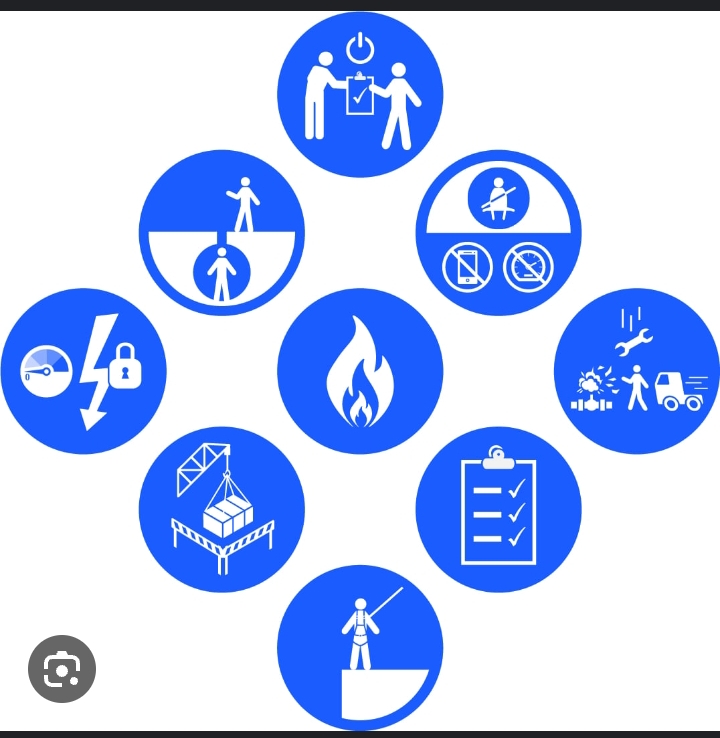
Ensuring Safety: A Deep Dive into the 9 Industry Life-Saving Rules (IOGP).
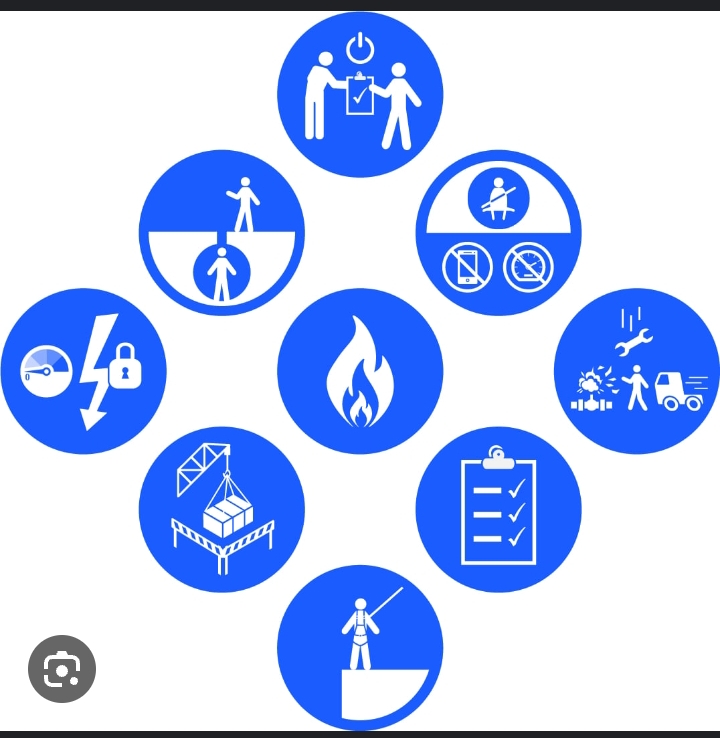
Ensuring Safety: A Deep Dive into the 9 Industry Life-Saving Rules (IOGP)
In industries where hazardous operations are a daily norm, safety protocols are paramount. The International Association of Oil & Gas Producers (IOGP) recognizes this critical need and has formulated the 9 Industry Life-Saving Rules. These rules are designed to prevent accidents, protect workers, and ensure a safe working environment. In this article, we’ll delve into these rules and understand their significance in safeguarding lives within high-risk sectors.
- Working at Height: One of the most common causes of accidents is working at elevated locations. This rule mandates the use of proper fall protection equipment, ensuring that employees are securely fastened and trained to navigate heights. Prevention of falls significantly reduces the risk of fatalities and injuries.
- Driving: Driving in industrial settings involves a combination of hazards that demand focused attention. This rule emphasizes the importance of adhering to speed limits, using seatbelts, and abstaining from distracted or impaired driving. By doing so, IOGP aims to minimize the likelihood of vehicular accidents.
- Confined Space Entry: Confined spaces pose unique risks due to limited entry and exit points, poor ventilation, and potential hazardous atmospheres. The rule requires thorough assessment, testing, and continuous monitoring of confined spaces before entry. This prevents exposure to toxic gases and ensures timely rescue in case of emergencies.
- Mechanical Lifting: Heavy machinery and equipment lifting demand meticulous planning and execution. This rule underscores the necessity of using proper lifting techniques, inspecting equipment, and maintaining safe distances from load-bearing operations. Adhering to these guidelines averts accidents that can result from equipment failure or mishandling.
- Hot Work: Working with open flames, welding, or other high-temperature operations carries inherent risks. The Hot Work rule dictates stringent procedures for obtaining permits, creating safe zones, and implementing fire prevention measures. This reduces the likelihood of fires that could cause catastrophic damage.
- Permit to Work: This rule ensures that workers have the appropriate authorization to conduct specific tasks. A Permit to Work system requires comprehensive assessments of potential hazards, clear communication among teams, and strict adherence to guidelines. This minimizes the chances of accidents resulting from unapproved or improperly managed tasks.
- Gas Testing: In industries where toxic gases are present, gas testing is crucial to ascertain the safety of the work environment. The Gas Testing rule mandates regular atmospheric checks, proper use of testing equipment, and accurate interpretation of results. This safeguard prevents exposure to harmful gases that could lead to health issues or fatalities.
- Line of Fire: Employees working in the vicinity of moving equipment or heavy machinery are vulnerable to being caught in the “line of fire.” This rule stresses the importance of staying out of hazardous zones, maintaining safe distances, and using barriers or warning signs to prevent accidents caused by moving objects.
- Personal Protective Equipment (PPE): Wearing the right PPE can be the difference between life and death in high-risk industries. This rule mandates the proper use and maintenance of personal protective equipment, such as helmets, gloves, goggles, and respiratory masks. Compliance ensures that workers are shielded from potential hazards and can carry out their tasks with reduced risk.
Conclusion
The 9 Industry Life-Saving Rules by IOGP are not just guidelines; they are a commitment to ensuring the safety and well-being of employees in industries where risk is a constant companion. These rules emphasize preventive measures, stringent protocols, and continuous training, underscoring the value of human life above all else. By adhering to these rules, industries can significantly reduce accidents, save lives, and foster a culture of safety that resonates throughout their operations.
IduwiniVoice Edubbas
‘Education Remain the Bedrock of Development’ — High Chief Angodideke

By: Derick Peretengboro
The growing belief that education remains a vital catalyst for development has been exemplified once again in the riverine Delta as the launch of the 2026 edition of the famous ‘Back to School’ initiative came alove in Delta State, courtesy of the Common Men Assembly (CMA). The body has reiterated its belief in education as a catalyst for development riverine Ijaw communities.
The programme, which focuses on supplying essential learning materials to public primary schools, is expected to benefit pupils in 25 communities across five local government areas.
Hight Chief Angodideke Jude, the Ogungbeiwei of Ngbilebiri-Mein Kingdom and Chairman of the CMA, while addressing stakeholders at the launch, said the initiative was conceived to address the persistent lack of basic educational infrastructure in riverine communities.
Working alongside Tantita Security Services Nigeria Limited and the Godfrey Pondi Book Club, the group distributed desks, books, bags, and sandals to selected schools on day one.
Schools in Okosugbene, Orugbene, and Ofogbene received 30 desks each, while other schools in Burutu and Warri South West LGAs received assorted learning materials.
The items were received by school officials and community leaders, including Mrs. Ebiyerin Esiri, Mr. Roland Government, and Mr. Oweikeniafa Ebi.
Pupils were seen excitedly engaging with the new materials, a development observers say could positively influence learning outcomes in the affected schools.
IduwiniVoice Edubbas
Wonders as Woman Lived with Parasitic Twin Inside Her for Almost 50 Years before Discovery
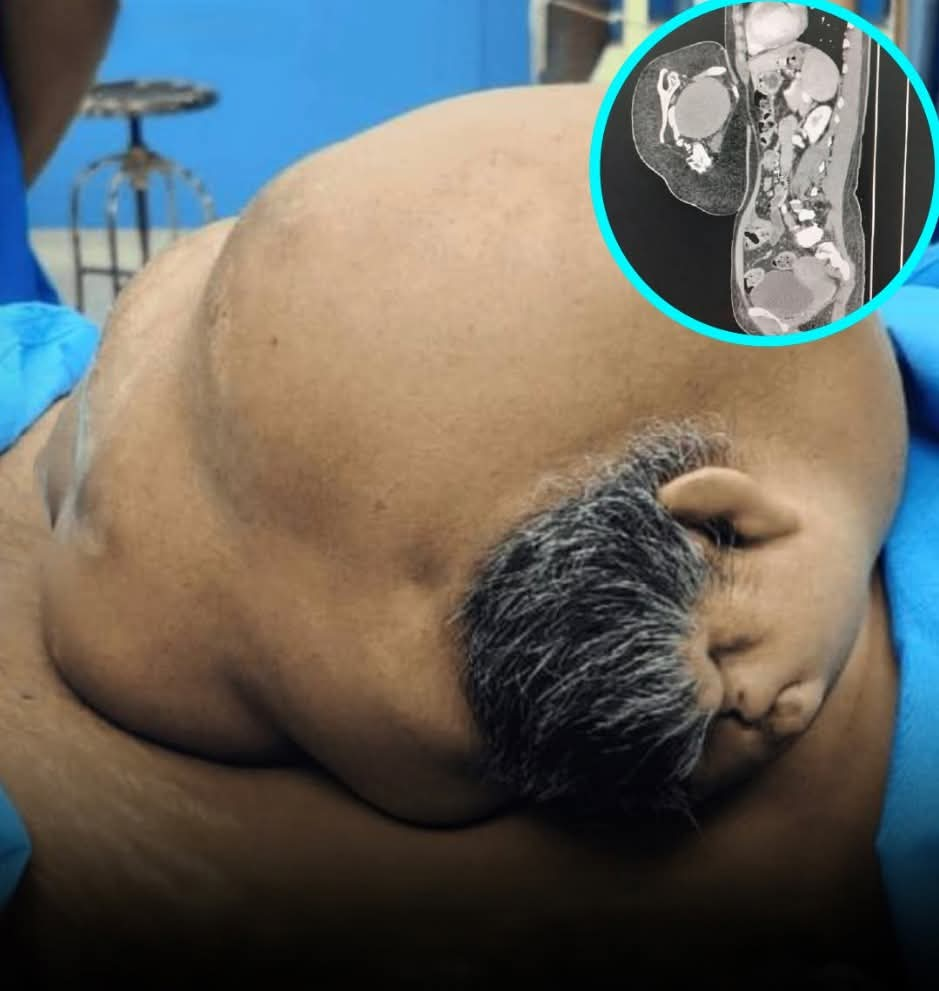
By: Daire Perez
Medical science isn’t just your everyday paracetamol and headache, seat back and be amazed by this rare and heartbreaking medical case. A 47-year-old woman recently learned that the large abdominal mass she had lived with since birth was in fact her undeveloped twin. The rare congenital condition known as an epigastric heteropagus twin, occurs when one embryo fails to fully develop and remains attached to the other during pregnancy.
According to reports, the woman – a mother of four – decided to undergo surgery after carrying the mass for nearly half a century. Surgeons discovered a 24-centimeter growth containing primitive human features, including an ear, a nose, and partially formed limbs. The mass was being nourished by an artery connected to the carrier’s abdomen.
Medical specialists involved in the case emphasized the crucial role of advanced imaging studies conducted before operation. These scans allowed doctors to precisely map the mass’s structure and safely remove it without endangering the patient’s life.
Cases of parasitic twins are extremely rare, making this one of the most unusual and fascinating occurrences in modern medical literature.
Adapted from Weired, Wonder, and Amazing Tings (Facebook)
IduwiniVoice Edubbas
TITANIC: A GRAVE IN THE DEEP – 113 YEARS LATER, QUESTIONS STILL HAUNT THE ATLANTIC
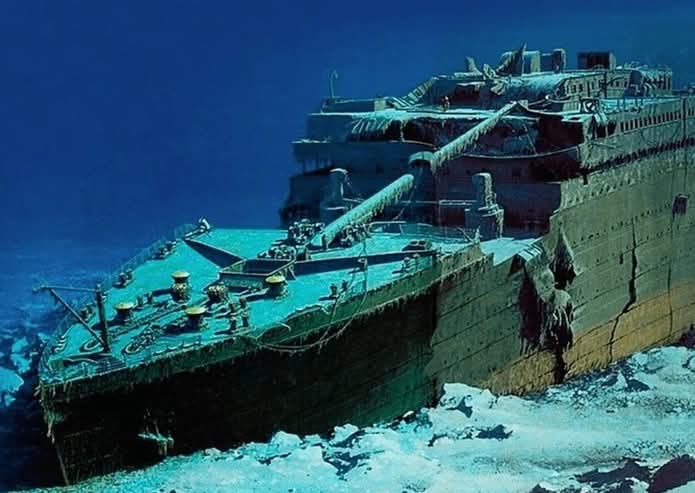
By Tama Peretengboro
Imagine the icy Atlantic, silent but for the fading cries of the doomed. On the early morning of April 15, 1912, the RMS Titanic-the so-called “unsinkable” ship-vanished beneath the surface of the North Atlantic,taking more than 1,500 lives with it.The tragedy remains one of the most devastating maritime disasters in history.
In the aftermath, survivors huddled in lifeboats, drifting in shock and silence.Many would later recall that the quiet that followed the sinking-the absence of voices, of splashes, of life – was more harrowing than the chaos itself.
For over seven decades, the wreck lay undisturbed, lost to time and memory-untilb1985, when an expedition led by Dr. Robert Ballard discovered the remains of the Titanic nearly 2.5 miles beneath the surface.What they found was a ship torn apart-broken in two and scattered across the ocean floor like an open wound frozen in time.
Since then, more than 5,000 artifacts have been recovered from the site, each one a chilling reminder of that fateful night: bottles of perfume that still carry their scent, letters that never reached their destinations, pairs of shoes lying where their owners once stood. These personal items have become the voice of the dead,telling stories that words cannot.
But even as these objects are studied and displayed in exhibitions around the world, a haunting question remains: Are there human remains still at the site?
Marine scientists are divided. Some argue that the ocean’s immense pressure, low temperatures, and microbial activity would have long since broken down any human tissue. Others point to the way personal effects remain arranged-shoes placed side by side, clothing intact in some cases-suggesting bodies once rested there,perhaps shielded by the deep.
What’s clear is that the Titanic is more than a shipwreck. It is a sunken memorial, a timecapsule lying in darkness. Over a century later, it continues to stir emotion and inquiry, reminding us that beneath the waves lies a tragedy that time can not wash away.
Credit: Weired, Wonder, and Amazing Things on Facebook

